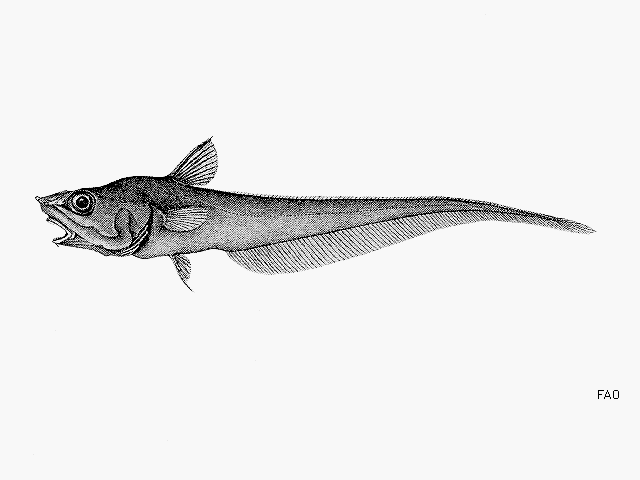| Macrouridae (Grenadiers or rattails) |
| 50 cm TL (male/unsexed) |
|
bathydemersal; marine; depth range 720 - 2400 m, non-migratory |
| Eastern Pacific: off the Pacific coast from Mexico to Peru, including the Galapagos Islands. |
|
Dorsal spines (total): 2-2; Anal spines: 0-0. Snout prominent, pointed; chin with very short barbel. Scales highly deciduous; ventral and leading surfaces of the snout naked; suborbital region dorsally mostly naked; suborbital ridge scales small if present; head ridges without enlarged scute-like scales. Overall color is gray brown to dark brown; oral cavity pale to grayish. |
| A deep-slope species of the tropical eastern Pacific (Ref. 9315). Polychaetes and benthic crustaceans are encountered in its stomach contents (Ref. 9315). Fairly common but of no commercial value (Ref. 9315). |
|
Not Evaluated (N.E.) Ref. (130435)
|
| harmless |
Source and more info: www.fishbase.org. For personal, classroom, and other internal use only. Not for publication.
